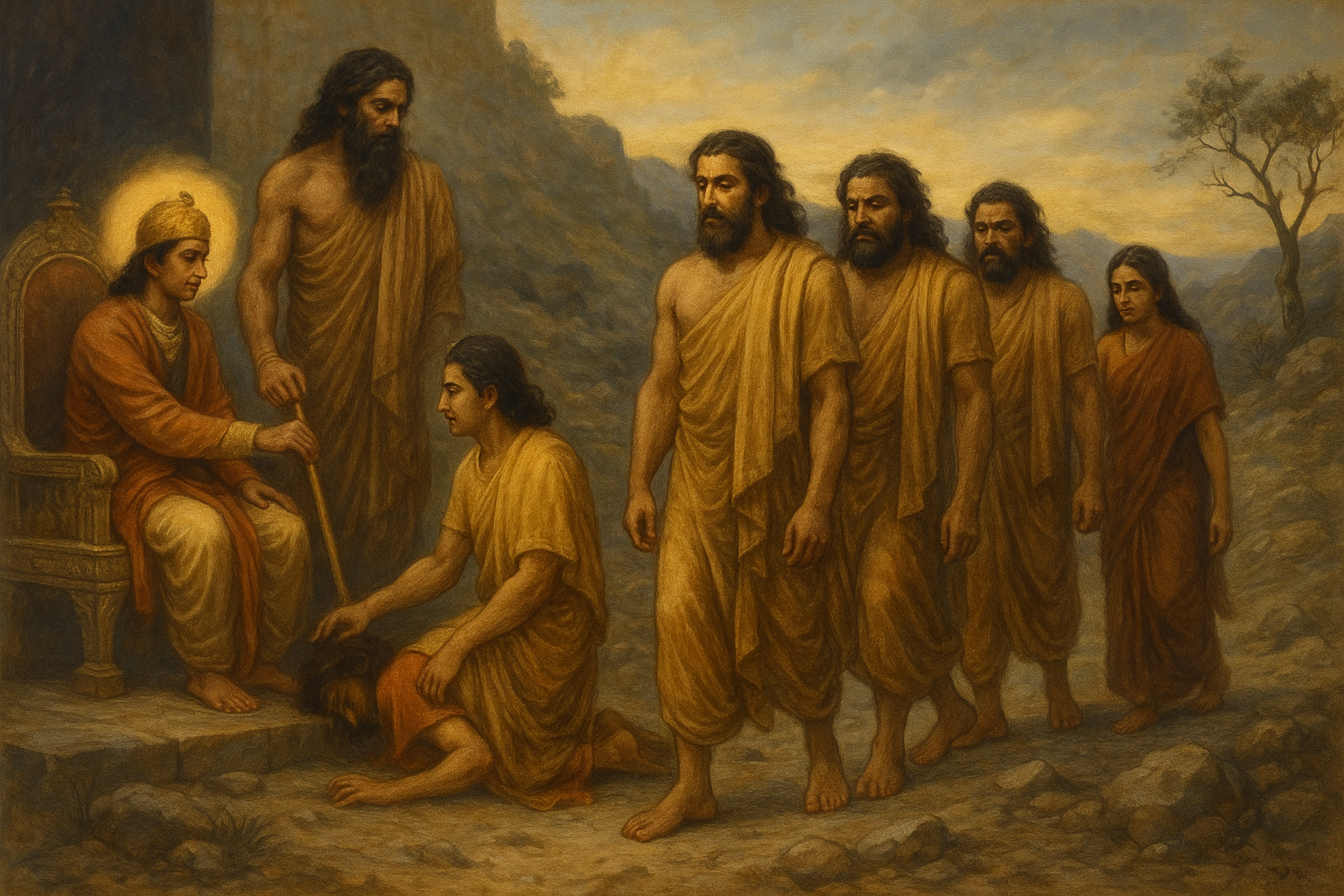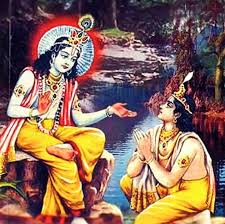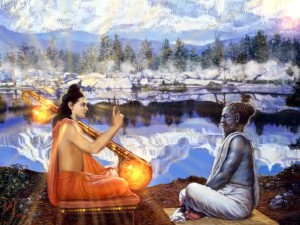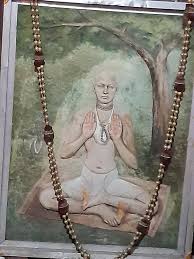The Dawn of a New Era
After the departure of the Pāṇḍavas and the Lord Kṛṣṇa, the Earth fell under the influence of Kali-yuga, the age of quarrel, hypocrisy, and spiritual decline. Yet, Mahārāja Parīkṣit, the grandson of Arjuna and sole heir to the Pāṇḍava legacy, took up the throne with firm faith and righteous intent, determined to uphold dharma amidst the rising tide of darkness.
Though young, Parīkṣit had the blood of the Pāṇḍavas in his veins and the grace of Kṛṣṇa in his heart. He ruled with justice, protected the brāhmaṇas, honored the devotees, and ensured that the varṇāśrama system continued with purity and reverence.
Kali’s Approach in Disguise
One day, Parīkṣit set out on a righteous tour of his kingdom, mounted on his chariot, to inspect and ensure the welfare of his subjects. In one region, he encountered a shocking sight:
A cruel man, dressed as a king, was mercilessly beating a bull and a cow. The cow stood trembling on three legs, symbolizing the remaining principles of dharma—truth, cleanliness, and compassion—while the fourth leg, austerity, had already been broken.
The bull, a symbol of dharma personified, was silent, enduring the pain.
This villain was Kali, the personification of the dark age, who had assumed royal attire and sought to infiltrate the age under the guise of power.
Parīkṣit Confronts Kali
Enraged by the sight of the helpless animals and the embodiment of adharma, Parīkṣit drew his sword and prepared to strike down Kali at once. Trembling and terrified, Kali fell at the king’s feet and begged for shelter.
Parīkṣit, though powerful, was also merciful and wise. He saw that Kali was destined to rule this age, as ordained by the cosmic order, yet he would not allow him to thrive unchecked.
The Banishment of Kali
Parīkṣit declared:
“You may live, but only in places where dharma and purity do not reside.”
He thus assigned Kali four places as his dwelling:
- Places of gambling
- Places of intoxication
- Places of illicit sex
- Places of animal slaughter and violence
Kali then begged for a fifth place. Parīkṣit agreed, saying:
“You may also reside in gold—wherever there is hoarding of wealth, pride born of riches, and falsehood driven by greed.”
Thus, Kali was granted five abodes, but Parīkṣit ensured that his influence was restricted by law, morality, and constant spiritual vigilance.
The Beginning of a Sacred Legacy
This act of protecting dharma became one of Parīkṣit’s greatest glories. His reign stood as a bridge between Dvāpara-yuga and Kali-yuga, where righteousness still lingered through the devotion of a single monarch.
It is also during his reign that the stage would soon be set for the recitation of the Śrīmad-Bhāgavatam, the spotless Purāṇa, for the upliftment of all souls in Kali-yuga.
Lessons to Be Learned:
- Even in the age of Kali, a righteous ruler can protect dharma and minimize the effects of adharma.
- The symbol of the bull and cow represents the spiritual foundations of society. Their protection is the protection of dharma itself.
- Evil may be restricted, not always eliminated—but only by wisdom and divine consciousness.
- Wealth and misuse of power are tools through which Kali thrives—beware of greed, arrogance, and false prestige.
- The heart of a devotee, like Parīkṣit, can stand strong even in a fallen age.
Origin of the Story: Harivamsa Purana 3 – Chapter 143: Parīkṣit’s Encounter with Kali and the Protection of Dharma in the New Age



